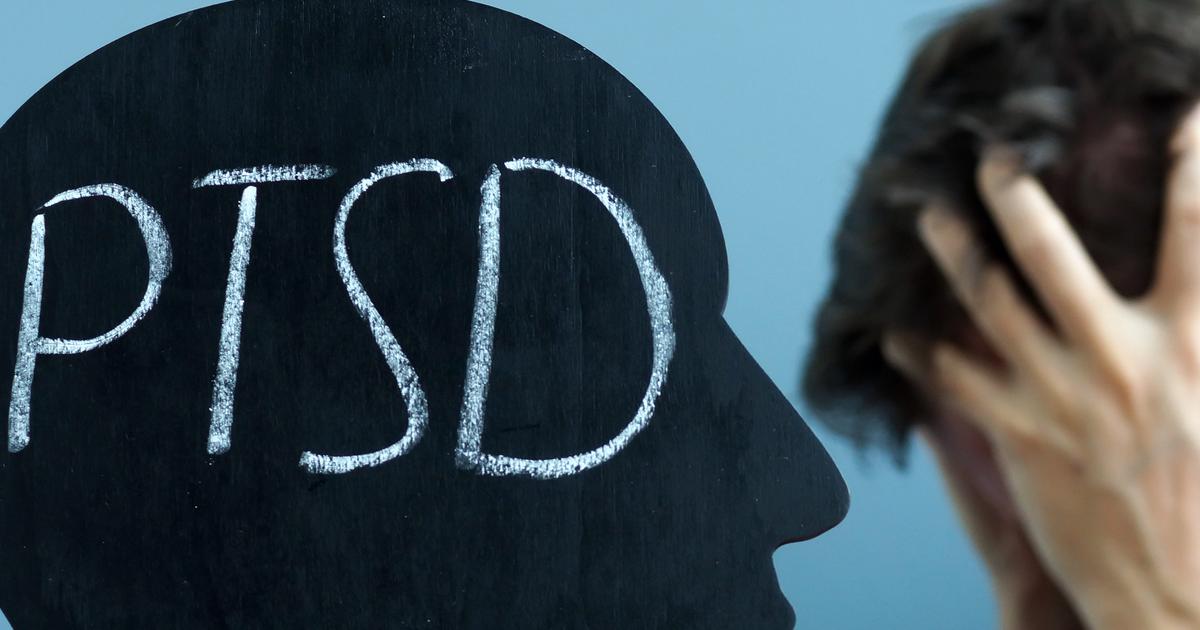Could You Have Adjustment Disorder/Stress Response Syndrome?
In recent years, disasters and tragedies seem to be everyday occurrences. From massive hurricanes to deadly shootings, the onslaught has many discussing the mental health of individuals experiencing major upheaval in their lives. After a particularly stressful life event, it is normal for individuals to experience periods of sadness, uncertainty, or loss. However, in some, these reactions begin to spiral out of control, and they have difficulty coping or accepting the situation.
A reaction becomes a mental illness when an individual experiences a significant change in thinking, behavior, or emotion that affects their everyday life. When a response to a life event is drastically damaging to an individual's daily routine or relationships, they may be experiencing adjustment disorder, also known as stress response syndrome. While this condition can be frightening, it is short-term and easily treatable.
What Is Adjustment Disorder/Stress Response Syndrome?

Adjustment disorder is an abnormally intense response to a life event. It is a severe, short-term condition that prevents an affected individual from coping healthily with a significant life change. In 2013, the most recent update of the Diagnostic and Statistical Manual of Mental Disorders (DSM-5) changed the official name of adjustment disorder to stress response syndrome. However, many use the two interchangeably and sometimes also refer to the condition as situational depression.
Stress response syndrome is pervasive and affects a wide range of individuals. It can occur at any point in the life cycle and especially during periods of upheaval or transition. Additionally, this condition is a significant issue after deadly disasters and tragedies.
Types Of Adjustment Disorders

To treat the mental illness more clearly, some psychiatrists differentiate between the various forms of adjustment disorders. There are three requirements for diagnosing this condition overall. Behavioral or emotional symptoms must develop within three months of the stressor, the stress must be abnormally intense or interfering with an individual's everyday life, and the signs aren't a part of another mental illness or healthy grieving process.
Adjustment disorders are categorized by the types of symptoms experienced. An individual can develop adjustment disorder with disturbance of conduct, depressed mood, anxiety, mixed depressed mood and anxiety, and mixed disturbance of emotion and behavior. If the symptoms don't neatly fit one of these categories, it is considered to be unspecified adjustment disorder.
How It's Different

There are similarities in symptoms between some types of stress response syndrome and depression, post-traumatic stress disorder, and anxiety disorder. However, the significant difference between stress response syndrome and other related mental illnesses is how long the symptoms last and the circumstances surrounding them. Stress response syndrome rarely lasts longer than six months, whereas other mental illnesses can be lifelong.
Additionally, stress response syndrome occurs following a specific life event or stressor, and other psychiatric disorders may arise for seemingly no reason at all. The stressor could also be a regular life event, not necessarily a traumatic or life-threatening one like the triggers of post-traumatic stress disorder.
Serious Symptoms To Watch For

Stress response syndrome identifies by a period of intense change in an individual's everyday personality, mood, and behavior. There is a wide range of symptoms that may accompany this disorder and these signs will vary from person to person. Depression-like symptoms such as intense sadness, hopelessness, isolation, and frequent crying are common. Anxiety, stress, and worry also increase. Physiological symptoms may occur, such as heart palpitations, stomach aches, trembling, sleeplessness, headaches, and drastic change in energy levels.
Behavioral changes include an increase of dangerous or risky behavior, changes in appetite, withdrawal from work, school, or social situations, and an increase in alcohol or drug usage. In more severe cases, individuals may experience suicidal thoughts or self-destructive impulses. Symptoms develop within three months of the onset of the stressor and typically do not last beyond six months after. However, some individuals experience chronic adjustment disorders when the stressor is ongoing.
Major Triggers And Causes

There are many different causes and triggers linked to stress response syndrome. An individual may develop this condition after a single stressful life event, including an unexpected disaster or tragedy, crime, assault, and accidents. Other situations that may cause the condition include personal circumstances such as a loved one dying, significant move, career change, the end of a relationship or marriage, and severe medical conditions.
Adjustment disorder in teenagers and children can occur by switching schools, academic or social issues at school, and parents' marital problems. In some cases, adjustment disorder is a result of ongoing stressors such as an unhealthy or dangerous home situation, chronic illness, or constant abuse.
Risk Factors For Stress Response Syndrome

Many factors influence how readily an individual reacts to stress, including socioeconomic, geographic, and genetic factors, as well as their upbringing and the availability of economic or social resources. An individual may be more susceptible to developing stress response syndrome if they have a history, personal or family, of mental illness. A preexisting psychological condition, such as anxiety, may also exacerbate the response to a stressful life event and contribute to the development of stress response syndrome. Particularly stressful childhoods or a myriad of life-changing events occurring at the same time can also increase the risk of developing this condition.
Available Treatment Options

The good news is many cases of stress response syndrome subside on their own. Over time, as the stressor fades, affected individuals come to term with the event, and their symptoms go away. However, professional help to aid with the coping process is readily available and beneficial to many patients. Treatment is also essential in ensuring stress response syndrome doesn't morph into another mental illness, such as anxiety disorder or major depression.
After a psychiatrist diagnoses a patient with stress response syndrome, there are many treatment options available, of which psychotherapy is the most common. This therapy can help patients understand their response, ease their symptoms, and develop healthy coping mechanisms going forward. Family therapy may be helpful for adolescents with adjustment disorder. Behavioral therapy and support groups are also available for the treatment of stress response syndrome.
Healthy Coping Mechanisms

It is normal to feel sad, alone, or anxious after a stressful life event. It is crucial for individuals to monitor their mental health, build resilience, and take steps to avoid sliding into a territory where professional help is needed. After a stressful or traumatizing life event, it is a good idea for individuals to have a plan in place to prevent their response from becoming stress response syndrome. There are many resources available to help cope with a traumatic event, both professional and informal. Feeling alone is possibly the most common response following a disaster or tragedy.
To mitigate these feelings, experts recommend joining an active support group. The support group could come in the form of family, friends, or community organizations like churches. In the modern age, it is also important for patients to regulate their media consumption after a life-changing event, so the constant barrage of bad news doesn't become overwhelming. Staying informed is essential after a disaster or tragedy, but many individuals will want to limit their exposure and avoid uncredible sources or rumors.
